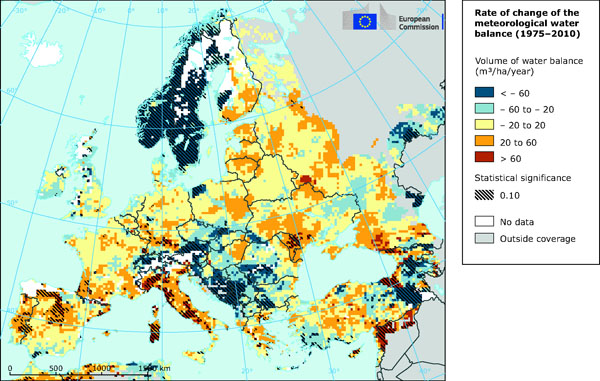The European Environment Agency has today warned that climate change is impacting all regions in Europe, with the past decade being the warmest on record.
In its report, Climate Change, Impacts and Vulnerability in Europe 2012, the European Environment Agency found that the last decade (2002-2011) has been the warmest on record in Europe, with land temperatures 1.3°C warmer than the pre-industrial average.
Earlier this week, the World Bank published a report in which it warned global temperatures could rise by 4°C by the end of the 21st century.
The UN Framework Convention on Climate Change (UNFCCC) has set the target of limiting global average temperature rises to below 2°C by the end of the century.
Next Monday, the UN climate change conference (COP18) will kick off in Doha, Qatar, for two weeks of climate change talks.
UNFCCC executive secretary Christiana Figueres said today that the Doha climate change summit must deliver on its objectives by speeding up global action towards a low-carbon future.
“A faster response to climate change is necessary and possible, both in terms of the international policy response and increasing action at national and sub-national policy level and from global business. Doha must make sure the response is accelerated,” said Figueres.

Credit: European Environment Agency
As for the European Environment Agency’s report, it said extreme weather events, such as heat waves, floods and droughts, have caused rising damage costs across Europe in recent years. It also anticipates that such extreme weather events will become more intense and frequent across Europe.
As a result of economic disparities, the agency warned that some regions will be less able to adapt to climate change than others.
“Climate change is a reality around the world, and the extent and speed of change is becoming ever more evident. This means that every part of the economy, including households, need to adapt as well as reduce emissions,” said Jacqueline McGlade, executive director of the European Environment Agency.
The report also projects that climate change will increase river flooding, particularly in northern Europe, as a result of higher temperatures intensifying the water cycle.
Looking to the Greenland ice sheet, the report points to how melting of the sheet has doubled since the 1990s, with exceptional melting recorded this past summer.
As well as this, glaciers in the Alps have lost around two-thirds of their volume since 1850, with the majority of glaciers in Europe receding, according to the European Environment Agency.
The report also warns that the Arctic is warming faster than other regions.
Floating icebergs image via Shutterstock